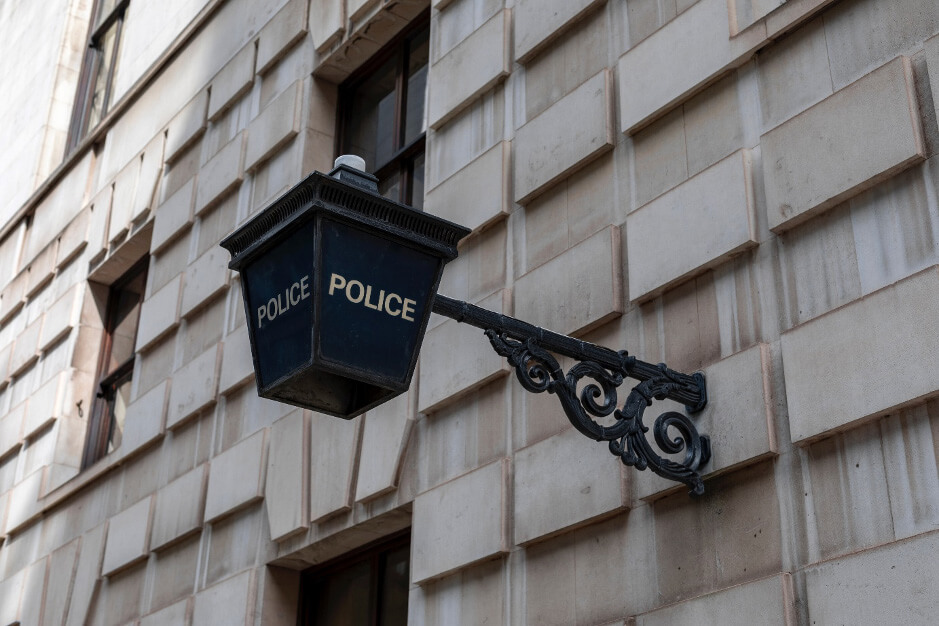Being raped or sexually assaulted is a shocking experience and the effects can last a long time. If you decide to report your assault to the police, you will be treated sensitively and with confidentiality.
You can make a report at any time; it does not matter if the assault occurred in the past. You can make a report by ringing the police on 101 or by attending the front office of your local police station during office hours.
If the assault has just occurred or you are in danger, please ring 999.
If you walk into a police station, please ask to speak to a member of staff in private – you will not be expected to explain your reasons in public. You may not see a police officer straightaway and they may take your contact details so that a specially trained officer can contact you.

What will happen if I report to the police?
1) The police will record your first account
When you report rape or sexual assault to the police, the details are usually taken from either a sexual offence liaison officer (SOLO) or a sexual offence investigation trained (SOIT) officer. These officers have specialist training and will get the initial details of what has happened to you which is known as your first account.
2) You may have a forensic medical examination
If there is a chance that there is any evidence on your body or clothing which could be saved, the officer will offer to take you to the nearest sexual assault referral centre (SARC) for a forensic medical examination. This will be carried out by a specially trained doctor called a forensic medical examiner. If you are in Sussex your nearest SARC is the Saturn Centre at Crawley hospital.
3) You will then give your account
After your medical examination, the police will need to obtain a more detailed account from you to make sure they know all the relevant facts and can decide how best to investigate. This can be done via a written statement or more commonly a video recorded interview. This is usually done at a local police witness suite after you have had a chance to get some rest. The recorded interview can be used later as your main evidence if the case goes to trial. Your interview will be conducted by specially trained police officers who will have carefully considered several factors before talking about what has happened with you. This may include your religion, race and culture, any special needs and your current emotional state. After your statement interview, you may find that you remember things that you did not recall before. This is common and may happen at any point in the investigation up to the trial. If you do remember more details, you should contact the police so that a further interview can be arranged.
4) The police will pull together all the evidence they can find to prove your case
As far as is possible, they will:
- locate where the assault took place
- take statements from any witnesses who can give relevant evidence surrounding the event
- request medical and forensic tests on any samples or exhibits collected
- retrieve any CCTV footage
- take photographs
- examine phone/computer records
- review any relevant information held by others.
They will also speak to the people who you disclosed your assault to; these people are known as early complaint witnesses. The police will also try to identify and locate the suspect (the person who raped or sexually assaulted you) to formally interview them. They may collect samples from their body and clothing to use as evidence. It can take several months for the police to complete the investigation. During this time, you will be kept updated by the police. If you attended a SARC, you will be linked up with an Independent Sexual Violence Advisor (ISVA) and supported by them throughout.
See our article on gathering forensic evidence

Will the suspect be charged?
The police are responsible for gathering the evidence in a case. In some cases, there is not enough evidence, and the police can take no further action. However, if the police feel there is sufficient evidence, they will submit the case to the crown prosecution service specialist rape and serious sexual offences (RASSO) lawyer to review. They will then decide whether the suspect should be charged.
The decision will be based on the following two questions:
1. Is there enough evidence to get a conviction?
In other words, would a jury, having considered all the evidence presented at the trial and having been informed about the law, be more likely than not to convict the defendant bearing in mind that to convict, a jury has to be sure beyond all reasonable doubt that the defendant is guilty of the offence charged.
It is possible that the prosecutor will ask the police to carry out more enquiries or will want to interview you themselves to get a better understanding of your evidence. It can be hard to have to wait for this to all happen, but it is important that the decision whether to charge is made based on the full set of facts.
If the answer is no – they cannot prosecute.
Without enough evidence, the case cannot proceed no matter how serious the allegation is. This decision will only be taken if two rape specialist prosecutors agree that there is not enough evidence. If this happens to you, please remember that this does not mean that you have not been believed – rather it means that they could not prove it. It is about proof not truth. Even if it stops at this point, you will have achieved something.
If the answer is yes – the second question must be answered…
2. Is a conviction in the public interest?
Rape and most other sexual offences are generally considered to be so serious that it is usually in the public interest to take the case to court. Your views will be considered, but it is important to remember that they prosecute cases on behalf of the public at large and not just the interests of any particular individual.
If the answer is no – they cannot prosecute.
There are occasions when it is not considered to be in the public interest to charge, for example if the defendant is very young or terminally ill.
If the answer is yes – they will prosecute.
What does the decision mean?
Where a decision to take no further action is made (either by police or the crown prosecution service (CPS)), this will be communicated to you through your officer in case and sexual offences investigation trained (SOIT) officer. This normally takes place face to face. They will explain the decision to you and provide you with letters which explain this and provide support services and other useful information. Your ISVA will also attend this meeting to support you.
Victim right to review
When either the police or CPS make a decision to take no further action, you have the right to ask for this decision to be reviewed by an independent person. This request will be made to the police or to the CPS. Your officer or SOIT officer will explain this to you. Further information on victim right to review and how to apply are on the letters provided and on the Sussex Police website.
What about reporting abuse that happened a long time ago?
Any person reporting historic sexual abuse to the police will be taken very seriously and the matter will be investigated as far as is possible. If the perpetrator is located, they will be arrested and interviewed. The passage of time means that much of the evidence may have been lost, although corroboration of early reports, medical and social services records are examples of lines of enquiry that can be pursued. Sometimes there are also other reports of similar abuse happening to someone else by the same person or people and this can corroborate your evidence.
Once the suspect has been interviewed and all other evidence possible has been compiled, the case papers will usually be forwarded to the crown prosecution service who will carefully consider your case along the same lines as the above.
Through all these processes, whatever happens, remember we are here at Lifecentre to do what we can to support you. We are here to listen, not to judge.
Always tell the truth
If you do decide to report to the police, it is so important that you tell them everything completely honestly. Do not cover up things that you might be worried about – you must be seen to be a truthful and reliable witness right from the start.
Even if your actions were not perfect and you did something that you regret (for example, if you took some drugs or were doing something you feel bad about), it is important not to hold back such information as it can very easily be used later to undermine your credibility. It is better to offer the information yourself and then it can be understood in the bigger context.
“Counselling came at a very difficult time. Lifecentre helped me to cope with the court case and helped me to accept lots of mixed-up anxieties. Boyfriend now sentenced and no longer a threat. Getting on with my family without him.”
Lifecentre client
Your right to anonymity
If you are concerned about people knowing about your case, then you might like to know that:
- The media cannot reveal the identity of the victim
- The court can be cleared of the general public – this is a special measure
The whole identity of the victim being hidden from the defence is not often done but is possible